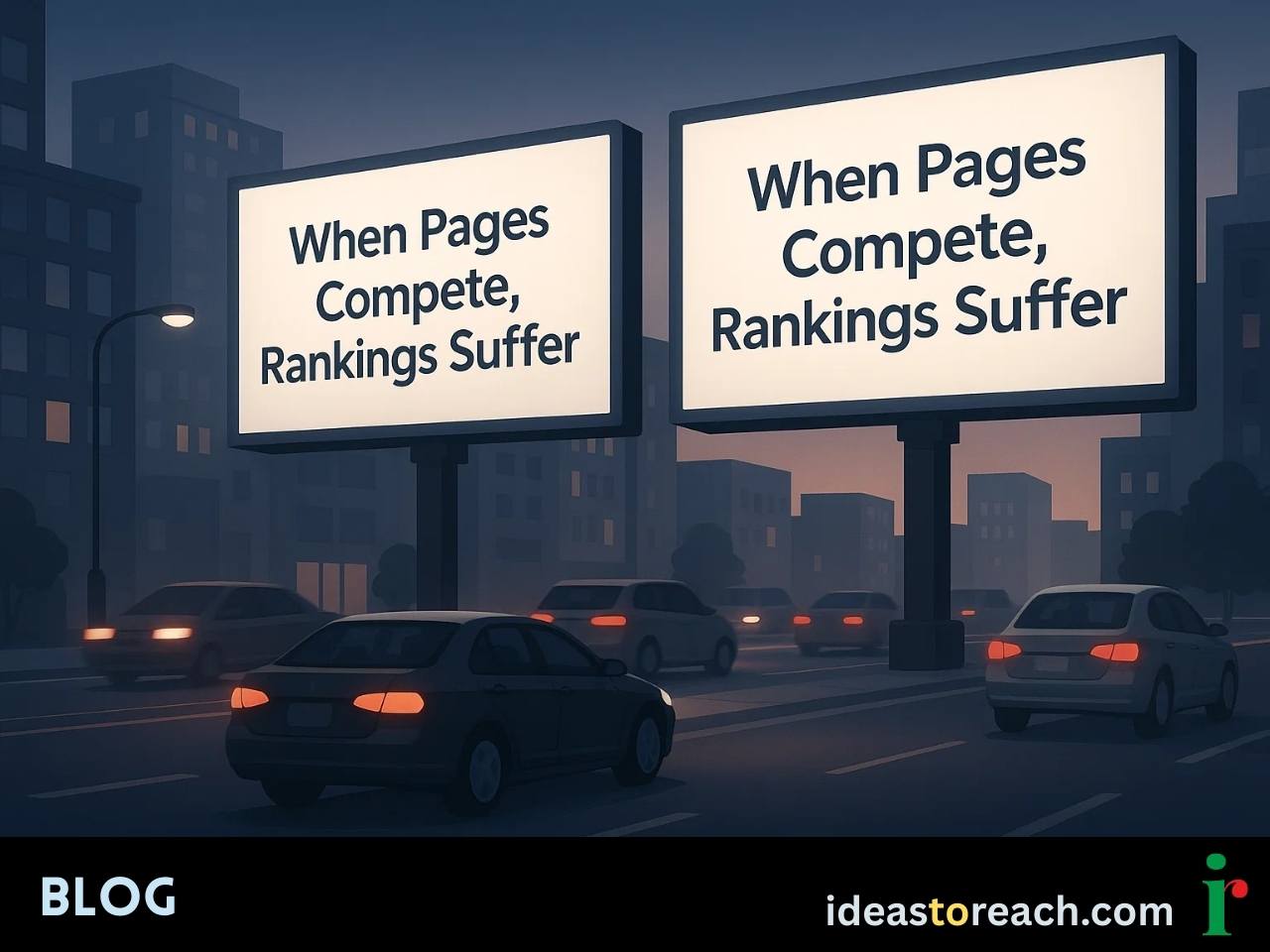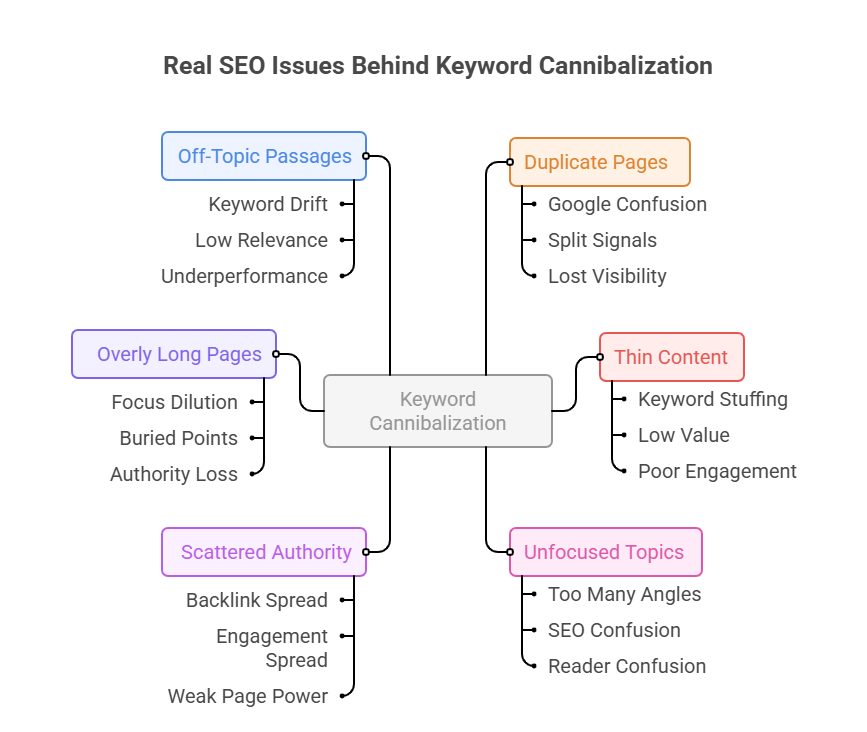
Imagine two billboards standing side by side on the same street. Both belong to the same builder, both scream “Flats in Chennai,” and both are fighting for the same buyer’s attention. Sounds confusing, right? That’s exactly what SEOs call keyword cannibalization, when your own web pages end up competing with each other online.
Let’s break it down.
Keyword cannibalization in SEO happens when multiple pages on your site target the same keyword or very similar topics. Instead of one strong page ranking well, you end up with several competing pages.
This can play out in two ways:
The myth:
If two or more pages target the same keyword, they’ll fight for attention and hurt your chances of ranking.
The reality:
If multiple pages from your site appear in search results, that’s not a bad thing. It’s actually a win, it shows Google found enough value in both to display them.
Even Google’s search team has clarified that this isn’t a penalty. Having multiple pages rank isn’t something to panic about, it can even show your authority. The only time it becomes a problem is when the pages are unnecessary duplicates or too weak to stand on their own.
So instead of blaming “cannibalization,” the smarter move is to look deeper at the actual content.
For context, Google’s shifts in ranking often tie back to concepts like E-E-A-T in SEO, which is about proving expertise and trustworthiness.
Think of it like real estate. If you own two different apartment projects in Chennai, and both are visible to buyers, that’s not competition, that’s dominance.
It’s the same online: if two of your pages show up on Google for the same search, you’re occupying more digital real estate. That pushes your competitors further down.
If cannibalization itself isn’t the villain, then what actually causes rankings to drop? Here are the real issues.

Mind Map showing the real SEO problems behind keyword cannibalization and why pages fail to rank.
When SEOs blame “cannibalization,” they’re usually covering up more concrete problems:
If your pages aren’t ranking, chances are one of these problems is the real culprit, and fixing them will get you far better results than chasing the myth of cannibalization.
To know more about how planning impacts rankings, read our blog on How a Missing SEO Roadmap Is Holding Your Rankings Back.
If you suspect your site is dealing with “cannibalization,” here’s what to do:
Keyword cannibalization isn’t about your site eating itself alive, it’s about clarity.
If your pages are useful, unique, and well-linked, having more than one page rank can be a strength, not a weakness. But if your site is full of thin, overlapping content, then yes, you’re holding yourself back.
So the real question isn’t “Are my pages cannibalizing each other?” It’s “Is each page adding unique value for my users?”
Get that right, and you won’t just have one billboard on the street. You’ll own the entire stretch.